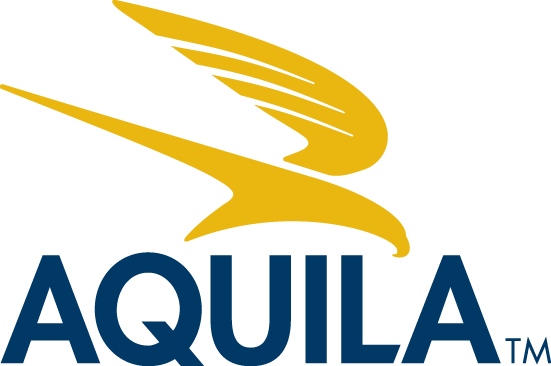You’ve found your ideal commercial real estate space, but your prospective landlord mentions that you will need a lease guarantee. What does that mean?
At AQUILA, we’re committed to answering your questions before you sign on the dotted lines. We know that negotiating your lease can be an intimidating process, but after helping hundreds of other tenants successfully negotiate their leases, we realize the importance of having an expert lead you through the process.
Read next: Your Guide to the Elements of a Commercial Lease
In this article, we’ll cover:
- What is a lease guarantee?
- Who can guarantee a lease?
- Types of lease guarantees
- How to negotiate a lease guarantee
What Is a Lease Guarantee and What Does It Cover?
A lease guarantee is an official agreement signed by the landlord, tenant, and in addition, a third party who meets the monetary requirements of the landlord. A lease guarantor serves as a financial intermediary and is responsible for the tenant’s defaults, which protects the tenant from eviction.
The purpose of a lease guarantee is to provide protection for both the landlord and the tenant. If a tenant does not meet a landlord’s credit requirements, the landlord may propose a lease guarantee, which should be mutually beneficial if negotiated correctly.
Read Next: Understanding Security Deposits in Commercial Real Estate Leases
Who Can Guarantee a Lease?
If you are looking for someone to sign as a guarantor on your lease, you have several options.
Corporations: The most common lease type that will require a guarantor is retail, which is often already under the umbrella of a corporation. In this case, it’s not uncommon for the corporation to guarantee the lease on behalf of the entity. The assets of the tenant will still be taken into account, but the new business already has protection from its larger counterparts.
Banks: If you are looking for someone to sign a lease guarantee for you and you’re not automatically guaranteed under a corporation, this may be your best option. Banks have an easily recognizable reputation and standing credit, and landlords may seek immediate encashment without legal action if there is a default.
Individuals: An individual may sign as your guarantor, but keep in mind that their assets as an independent will be taken into account when being considered as your guarantor.
What Information Will the Landlord Look Into?
Whether the guarantor is a corporation, a bank, or an individual, the landlord will do due diligence to assure that the cosigner has the assets to support the tenant. Here is the information a landlord may require from a prospective guarantor:
- Net worth
- Credit
- References
Read Next: What Is a Triple Net (NNN) Lease and What’s Included in It?
Types of Lease Guarantees and What They Cover
Absolute/Full Guarantee
The Absolute Guarantee is the most basic type and is by default will set the guarantor to cover all of the tenant’s obligations, and potentially any renewals and modifications as well. Landlords may propose this type of lease to a larger retail tenant or someone who is redesigning their space before moving in. Remember, just as a lease guarantee protects you, it protects the landlord as well. With more on the line, a Full Guarantee could be considered for full-term insurance.
Limited Guarantee
The Limited Guarantee may be more attractive to a guarantor as it limits some of the risks that come with signing on as a guarantor, but still gives the tenant a safety net of protection. This agreement limits the types of tenant obligations covered by the guarantee such as:
- Limiting the extent to which a guarantor is liable for a tenants lease obligations
- Fixing the dollar amount of maximum liability the guarantor could be liable for
- Beginning with an Absolute Guarantee for some initial portion of time up until the tenant defaults, full coverage is limited in some way
Good Guy Guarantee
The Good Guy Guarantee is a Limited Personal Guarantee where the guarantor is fully chargeable for the payment of the rent and potentially other lease obligations of the tenant. This only applies while the tenant remains in possession of the leased space, but only if certain conditions are met. If the tenant meets the subsequent conditions, the guarantor’s liability will expire at the tenant’s surrender date:
- The tenant gives the landlord suitable advanced notice (usually 90 to 180 days) of the date they will vacate the premises
- The tenant surrenders the establishment within the condition required by the lease
- The tenant is current and up to date on their lease obligations at the time of premise vacation
Read Next: How Long of a Commercial Lease Should I Sign?
A Good Guy Guarantee will not cover all of the landlord’s potential losses, therefore it is often used hand in hand with a formula-based cap or dollar amount to pad the landlord’s liability.
Bad Acts Guarantee
With a Bad Acts Guarantee, the guarantor is liable for only “bad acts,” which include items such as the following:
- Hazardous substance contamination
- Grossly negligent or intentional damage to the premises
- Fraud
- Misappropriation of tenant funds by the guarantor
Personal/Corporate Guarantee Versus Bank Guarantee
The difference here is based on the type of entity signing the guarantee. Usually, and especially in retail leases, an owning corporation will take on the role of guarantor. A bank is still able to sign and take on the role of guarantor, though. In this case, if the tenant breaches a contract, the landlord may immediately collect payment without the process of legal action.
Read more: Typical Types of Commercial Leases in Austin, Texas (NNN Lease vs. Gross Lease, more)
How to Negotiate a Lease Guarantee
Negotiating your lease guarantee can significantly benefit you in the long run. If you need to challenge one of the details in your agreement later, something important to keep in mind is that discrepancies will always lean in favor of the tenant.
If you still feel like you could use more direction, connect with one of our expert Tenant Representation Brokers to negotiate the best possible terms on your lease for you.
With that aside, here are a few things to consider negotiating before signing your lease guarantee:
- The limits on which the lease guarantee will cover
- Expiration date
- Cap it at a certain dollar amount
- Set liability cap
- Terminating a lease guarantee once reaching a financial benchmark
To continue learning about lease guarantees, schedule a consultation with one of our expert brokers today.
Or, to continue learning about what your lease means and how to negotiate it, visit the AQUILA Learning Center.














